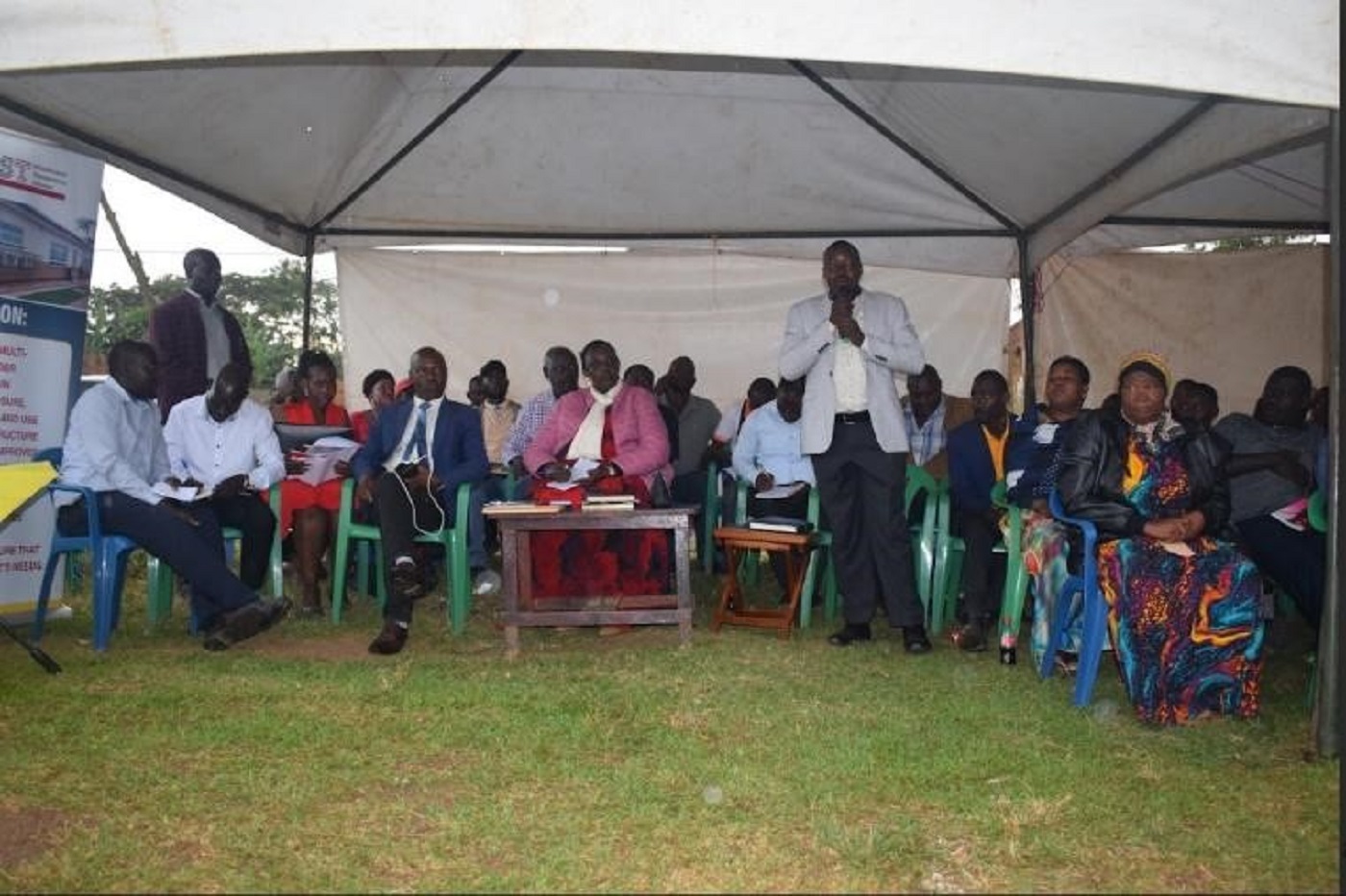
Improving stakeholders’ Engagement in Transparency and Accountability in the Delivery of Infrastructure projects
Overview
In February 2025, CoST Uganda facilitated two impactful community baraza meetings in the districts of Nwoya and Gomba. They provided a platform for communities to engage directly with government officials and offering an opportunity to discuss Transparency and Accountability in delivery of Road infrastructure projects- “Goo Dero Wii Lacor and Kyabagamba-Kyayi Roads”. Interestingly, the community in Nwoya expressed gratitude for the baraza in their village, which marked the first of its kind. One participant remarked, “Without CoST Uganda arranged Baraza Meeting, we would not know how much this road costs and why it did not reach the planned area of Wii Lacor”. The meeting revealed that Goo Dero Wii Lacor Road, initially planned for 5.2Km, had been extended to 7.9Km, reaching our Mulila trading Centre”. “This transparency allowed the community to better understand the project scope and progress.
A notable outcome of the of the baraza was the community’s proactive response to healthcare challenges, “Our family has agreed to donate land for construction of a health Centre II to address the challenges of inaccessibility to health care within Mulila viallge. We witnessed women delivering along the way due to bad roads. Now, the government can plan to add onto this offer”, Mr. Ochen Martin shared. This land initiative comes as a direct contribution from the community Baraza meeting under the 6th Independent Review Process.
The desk review findings presented at the event encouraged the community to maintain proper road utilization and hold officials accountable for the construction of Goo Dero Wii lacor road as part of Project for the Restoration of Livelihood in Northern Uganda (PRELNOR) program and many other road projects.
By adopting a community civic engagement strategy, CoST Uganda has enhanced citizens’ commitment and active participation in the implementation of local infrastructure projects and collaboration with public officials to promote development. This engagement promotes a sense of ownership and sustainability of infrastructure projects by the communities.
Whereas there is willingness by the district leadership to promote transparency and accountability in the delivery of infrastructure projects, the Chief Administrative Officer expressed the need for capacity building on procurement data publication given the districts’ limited digital disclosure practices while claiming they mostly disclose manually through the notice boards, than authorized government digital platforms.
The baraza meeting attracted strong participation from both District leads and subcounty/village leadership with Over 200 community members underlining their widespread interest in ensuring accountable Infrastructure delivery.
